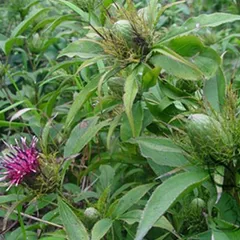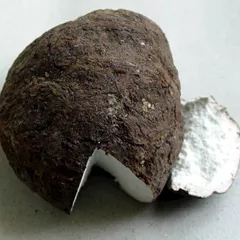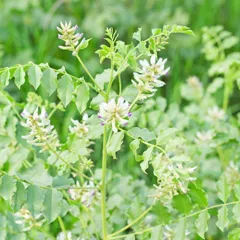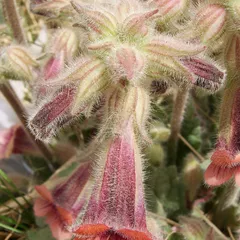Lung Qi Deficiency
The information provided here is not a replacement for a doctor. You shouldn't use it for the purpose of self-diagnosing or self-medicating but rather so you can have a more informed discussion with a professional TCM practitioner.
At a glance
Preliminary reading: What is a pattern? The Lungs in Chinese Medicine The concept of Qi The concept of Deficiency
Key attributes
Chinese name: 肺气虚 Pinyin name: Fèi Qì Xū
Pattern nature: Empty
Pattern hierarchy: Specific pattern under Qi Deficiency
Common combinations: Spleen and Lung Qi Deficiency Lung and Heart Qi Deficiency
Causes
Precursor patterns: Spleen Qi Deficiency Spleen Yang Deficiency Spleen Qi Sinking and three other possible precursors
Common causes: 1. Weak constitution, 2. Emotional stress, 3. Bad life habits, 4. Excessive use of voice, 5. External Wind-Cold or Wind-Heat, 6. Drug
Diagnosis
Common symptoms: Aversion to speak Spontaneous daytime sweating
Pulse type(s): Empty (Xu)
Tongue description: Pale or normal color tongue
Treatment
Treatment principle: Tonify Lung Qi, warm Yang
Common formulas: Si Jun Zi Tang Jiu Xian San Bu Fei Tang and two other formulas
Pathology
The Lungs govern Qi and respiration. Therefore there will be shortness of breath and coughing in case of Lung Qi Deficiency. However the condition is not severe as it is mostly on exertion and not full-blown symptoms of bronchitis or asthma.
Symptoms like coughing can also appear if Lungs' Qi downwards directing function is impaired due to Rebellious Lung Qi.
In case of Lung Qi Deficiency, Qi's protecting, dispersing and descending function can not be performed properly and thus patients feel tired, weak, dislike speaking and they are very easy to catch bad cold or flu. They also experiences spontaneous sweating.
Causes
Precursor patterns: Lung Qi Deficiency can derive from Spleen Qi Deficiency Spleen Yang Deficiency Spleen Qi Sinking Heart Qi Deficiency Spleen Blood Deficiency Spleen not controlling Blood
Weak constitution: Hereditary Lung weakness can lead to this pattern, especially if one of the parents suffered from tuberculosis.
Emotional stress: Emotional stress, especially sadness and grief, depletes Lung Qi. If this situation persists over a long period of time without being treated properly, it can develop further to Lung Qi Stagnation as the Deficient Qi fails to move in the
chest.
Bad life habits: If a person often stoops over a desk for long hours, breathing can be easily constricted and, in the long run, cause Lung Qi Deficiency.
Excessive use of voice: Excessive use of voice over many years can also deplete Lung Qi.
External Wind-Cold or Wind-Heat: External Wind-Cold or Wind-Heat can attack the Lungs directly. If they are not treated properly, as some pathogenic factors stay in the body, it can cause Lung Qi Deficiency in the long run.
Drug: Over dosage of drugs such as antibiotics can constrain Coldness inside the Lungs and case Lung Qi Deficiency.
Diagnosing Lung Qi Deficiency
Diagnosing a pattern in Chinese Medicine is no easy feat and should be left to professional practitioners. In particular one has to know how to differentiate between different types of pulses and tongue coatings, shapes and colors as well as learn to read from a long list of seemingly unrelated symptoms.
Pulse type(s): Empty (Xu)
Tongue description: Pale or normal color tongue
Main symptoms: Aversion to speak Spontaneous daytime sweating
Diagnosis commentary: Key characteristic symptoms of this pattern are the slight short of breath and am Empty Lung pulse.
Treating Lung Qi Deficiency
Treatment principle
Tonify Lung Qi, warm Yang
Herbal formulas used to treat Lung Qi Deficiency



The top herbs in Si Jun Zi Tang are Ginseng (Ren Shen), Atractylodes Rhizomes (Bai Zhu) and Poria-Cocos Mushrooms (Fu Ling)
Si Jun Zi Tang
Source date: 1107 AD
Number of ingredients: 4 herbs
Key actions: Tonifies Qi. Strengthens the Spleen and Stomach.
Formula summary
Si Jun Zi Tang is a 4-ingredient Chinese Medicine formula. Invented in 1107 AD, it belongs to the category of formulas that tonify Qi.
Besides Lung Qi Deficiency, Si Jun Zi Tang is also used to treat Qi Deficiency or Stomach Qi Deficiency.



The top herbs in Ren Shen Ge Jie San are Tokay Geckos (Ge Jie), Ginseng (Ren Shen) and Poria-Cocos Mushrooms (Fu Ling)
Ren Shen Ge Jie San
Source date: 1047 AD
Number of ingredients: 8 herbs
Key actions: Tonifies the Qi. Augments the Kidneys. Stops coughing. Arrests wheezing.
Formula summary
Ren Shen Ge Jie San is a 8-ingredient Chinese Medicine formula. Invented in 1047 AD, it belongs to the category of formulas that tonify Qi.
Besides Lung Qi Deficiency, Ren Shen Ge Jie San is also used to treat Kidneys failing to receive Qi or Phlegm-Heat in the Lungs.



The top herbs in Jiu Xian San are Poppy Capsules (Ying Su Ke), Chinese Plums (Wu Mei) and Schisandra Berries (Wu Wei Zi)
Jiu Xian San
Source date: Yuan dynasty
Number of ingredients: 9 herbs
Key actions: Secures the Lungs. Stops coughing. Augments Qi . Nourishes Yin.
Formula summary
Jiu Xian San is a 9-ingredient Chinese Medicine formula. Invented in Yuan dynasty, it belongs to the category of formulas that secure Lungs and stop coughing.
Besides Lung Qi Deficiency, Jiu Xian San is also used to treat Lung Yin Deficiency.



The top herbs in Zhi Gan Cao Tang are Liquorice (Gan Cao), Unprepared Rehmannia (Di Huang) and Ginseng (Ren Shen)
Zhi Gan Cao Tang
Source date: 220 AD
Number of ingredients: 10 herbs
Key actions: Augments the Qi. Nourishes Yin. Nourishes the Blood. Restores the pulse.
Formula summary
Zhi Gan Cao Tang is a 10-ingredient Chinese Medicine formula. Invented in 220 AD, it belongs to the category of formulas that tonify Qi and Blood.
Besides Lung Qi Deficiency, Zhi Gan Cao Tang is also used to treat Qi and Blood Deficiency.



The top herbs in Bu Fei Tang are Ginseng (Ren Shen), Milkvetch Roots (Huang Qi) and Schisandra Berries (Wu Wei Zi)
Bu Fei Tang
Source date: 1331 AD
Number of ingredients: 6 herbs
Key actions: Augments the Qi. Stabilizes the Exterior.
Formula summary
Bu Fei Tang is a 6-ingredient Chinese Medicine formula. Invented in 1331 AD, it belongs to the category of formulas that tonify Qi.
Diet recommendations
It is recommended to eat only cooked foods and not iced drinks. Eat sufficient protein at each meal such as black bean, soup with ginseng, garlic and onions, cooked vegetables and greens and plenty of grains and especially rice. Avoid cold or raw foods as well as drinks, salads, fruit, juices, alcohol and caffeine.
Avoid excessive stooping or leaning over tables or desks. Dress warmly according to the season, especially with a scarf around the neck. Avoid overwork or excessive sexual activities. Go to bed early and take plenty of rest properly. Work on emotional problems and try to avoid being sad and worried. Try nasal wash if necessary.
As for other therapies, try moxibustion especially over the lower abdomen or breathing exercises.
As for sports, try light to moderate exercise within the body's limits. It is better to avoid intensive aerobic sports, but rather try walking, swimming, cycling, Yoga, Tai Chi or Qi Gong.
Related conditions
Please keep in mind that a Western Medicine condition can be caused by several Chinese Medicine patterns of disharmony and vice versa. As such a patient suffering from one of the conditions below will not necessarily be suffering from Lung Qi Deficiency, it is just one pattern that's commonly associated with the condition. Click on a condition to learn what other patterns it's associated with.
Anemia Hepatitis Nervous exhaustion Habitual miscarriage Ulcers
Consequence patterns
If left untreated Lung Qi Deficiency can lead to Spleen not controlling Blood
If left untreated Lung Qi Deficiency can lead to Spleen Blood Deficiency
If prolonged, Lung Qi Deficiency may lead to Kidneys failing to receive Qi
When Lung Qi is Deficient for a long term, it can hurt Lung Yang.
According to Five Phases theory, Earth (the Spleen) is the Mother of Metal (the Lungs). Therefore Spleen Qi Deficiency often leads to Lung Qi Deficiency and vice versa.
According to Five Phases theory, Earth (the Spleen) is the Mother of Metal (the Lungs). Therefore Spleen Qi Deficiency or Sinking often leads to Lung Qi Deficiency and vice versa.
If Lung Qi Deficiency persists for a long time, it can eventually develop to the Yin Deficiency in the Lungs.
